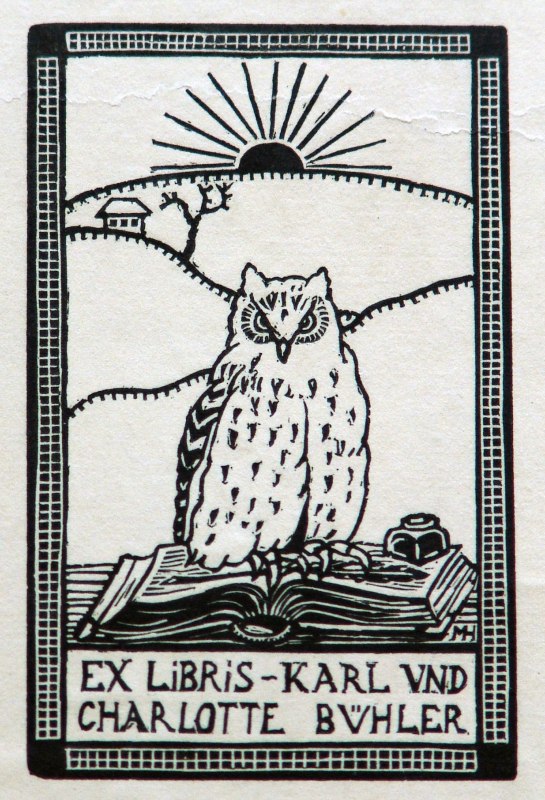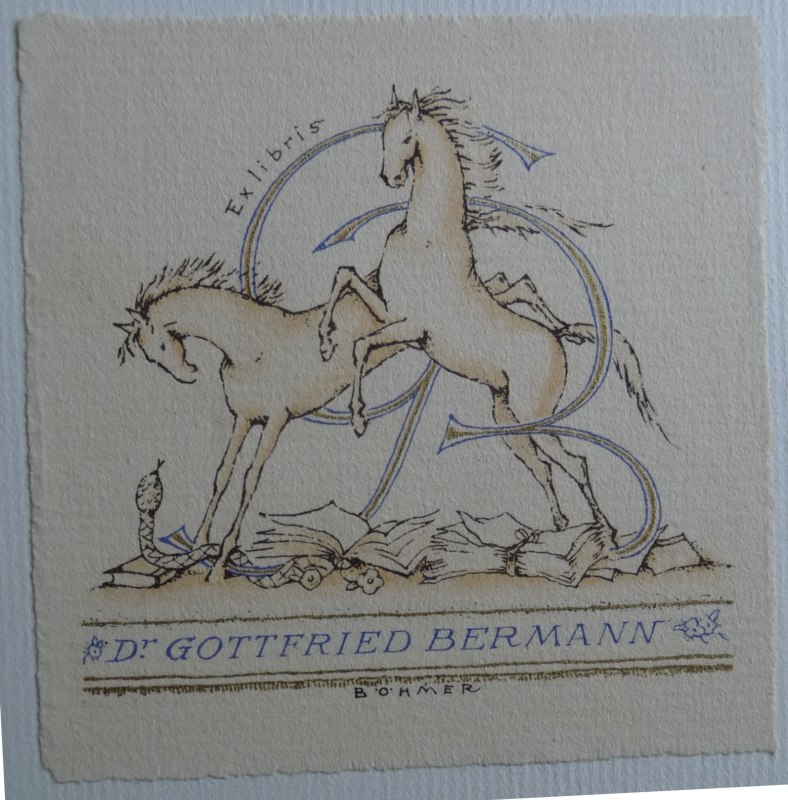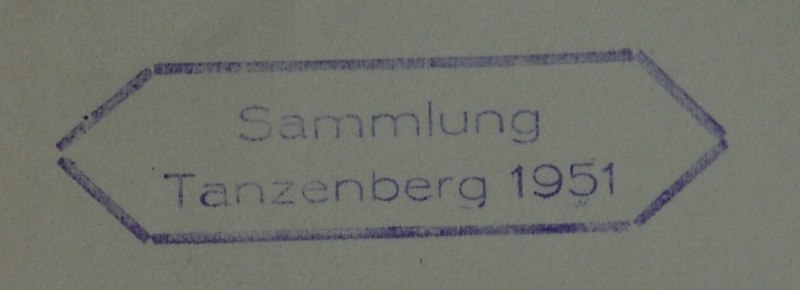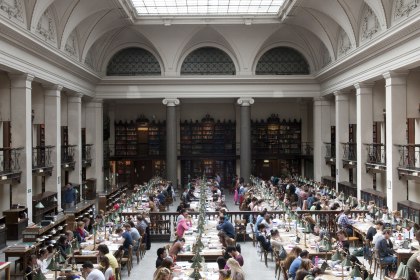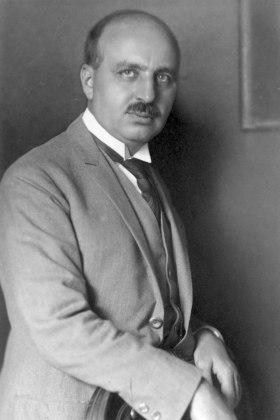National Socialist provenance research at the Vienna University Libraries
At the beginning of the 21st century a newly found interest in coming to terms with the history of goods stolen by the Nazis emerged. The Viennese University Library was the first university library in Austria to begin systematically looking for stolen books that had found their way to its shelves and stacks during the Nazi era and afterwards. Since then hundreds of thousands of books have been investigated, expansive research has been conducted and many books have been returned to heirs and legal successors. As a service to further research and for the history books the results have been made public.
Nazi loot arrives at the university’s libraries
It is part of the Viennese university’s history during the Nazi era that its libraries profited from books stolen by the National Socialist regime. Books and whole libraries appropriated in targeted art raids as well as through dispossessions of religiously/racially or politically persecuted people ended up in the libraries. Here they were often eagerly expected, mechanically processed and handed on as duplicates, sometimes given as loans. Books and collections their original owners had to leave behind were integrated into the library stocks. Many books remained unprocessed and were put aside to be dealt with later; some of them were passed on without fanfare.
After 1945: Restitutions, but also “new” stolen books
These stolen books’ history however did not end with the Nazi era. On the one hand, a number of restitutions were completed in the time immediately after the war – with the well-known caveats that the victims themselves had to go to lengths to get back their property and that the documentation was so bad that many books still remained in the libraries. On the other hand, items stolen by the National Socialists still found their way into the library stocks. The University Library (today’s Main Library) not only took over the books from the Viennese Gestapo headquarters, but also for example from the “Tanzenberg collection”. This collection, named after its depository in the Carinthian castle Tanzenberg, consisted of items stolen from all over Europe which had now become so-called “abandoned goods” and were distributed in the 1950s and reviewed for a long time by the University Library.
At the institute libraries books from loans were stored temporarily or added to the collections. Some of these included loans from such organizations as the National Socialist “Ahnenerbe” (“ancestor’s heritage”), the freethinking All Peoples’ Association or from the belongings of prominent victims of Nazi persecution, like the former Viennese professors and scholars Guido Adler (1855-1941), Karl Bühler (1879-1963) or Elise (1865-1943) and Helene Richter (1861-1942).
A case example: Gottfried Bermann-Fischer
Gottfried Bermann-Fischer’s (1897-1995) case is representative of many cases found, investigated and resulting in restitutions. The publicist born in 1897 had to flee Nazi Germany and came to Austria in 1936. Immediately after the “Anschluss” in March 1938 he continued on to Switzerland. His private library as well as new works from the Bermann-Fischer publishing house were “forfeited” to the German Reich and were given to the Viennese National Library by the Gestapo. This library passed on the books they already had in their stocks. Thus, two of these books ended up being gifted to the University Library of Vienna. One of them could be unambiguously attributed to Dr. Gottfried Bermann via his bookplate. Another volume with his bookplate was found among the items given to the University Library by the book sorting center in 1951, where it was marked with the “Tanzenberg collection” stamp. Furthermore, the Institute of German Philology’s library bought the three-volume work “Briefe an Cotta” from the antiquarian bookshop Friedrich Toda in 1974. These books are again clearly attributable to Bermann-Fischer through his bookplate. It is impossible to say how the bookshop which was “Aryanized” in 1938 came into possession of these books. In any case they were not among the items restituted by the Austrian National Library after the war. In 2013, the volumes found at the university library were restituted to Gottfried Bermann-Fischer’s heirs.
A non-issue
For a long time, the engagement with stolen books on the shelves and in the stacks of the university libraries remained dependent on individual initiatives. Approaching this subject was left to dedicated librarians in the context of homework assignments during their training. This changed drastically when new publications investigated the book theft by the Nazi regime and long overdue restitutions were being discussed internationally at the beginning of the 21st century. With the implementation of the Kunstrückgabegesetz (art restitution law) in 1998 the systematic examination of theft and restitution in Austria’s libraries had begun.
The Viennese University Library begins provenance research and restitutions
In 2004, as the first university library in Austria to do so, the University Library of Vienna started a project to systematically search for and return books stolen in the Nazi era. In the following years, hundreds of thousands of books from the Main Library and the more than 40 special libraries were manually examined for evidence of former owners (such as inscriptions, stamps or bookplates) and about 60,000 clues were documented for further inquiries. Furthermore, archive material and specialist literature was studied, inventory books were analyzed and conclusions were compared to other projects.
The results were detailed in case dossiers, pending restitutions were decided on, heirs were looked for and in some cases found in cooperation with the Isrealitische Kultusgemeinde (Israelitic Community) of Vienna and the National Fund of the Republic of Austria for victims of National Socialism. In 2009 the first restitution took place and since then books were returned to the legal successors of the original owners in more than 15 cases (as of 09/2014).
The data does not suffice in all cases to find heirs or to identify legal successors. It became clear that certain books were stolen during National Socialism without the victims being known. Such cases are made public in the National Fund’s art database, to possibly receive more evidence.
National Socialist provenance research: a public and historical contribution
The University Library’s provenance research does not restrict itself to the settlement of cases and internal documentation of results. Instead, these are publicized in various ways: on the website and in the online catalogue of the University Library, at scientific conferences and in international research groups, via special publications or in lectures. This aims to encourage similar projects, by sharing results and carrying on with tested methods. It also aims to show the library’s awareness of its responsibility for its collections and their scientific examination. This permanently established research group illuminates a long ignored part of the University of Vienna’s library history, establishes connections to various university initiatives and puts its results into practice.
Articles
- Dealing with National Socialism after 1945
- The de-Nazification of the professorate at the University of Vienna
- Gates of Remembrance on the Campus of the University of Vienna
- DENK-MAL Marpe Lanefesch
- National Socialist provenance research at the Vienna University Libraries
- Memorial Book for the Victims of National Socialism at the University of Vienna in 1938
- Monument “Expelled Historians”
- The University Library

